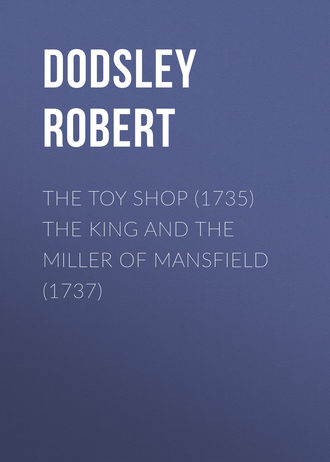The Toy Shop (1735) The King and the Miller of Mansfield (1737)
 полная версия
полная версияThe Toy Shop (1735) The King and the Miller of Mansfield (1737)
Жанр: зарубежная драматургиязарубежная классиказарубежная старинная литературалитература 18 векасерьезное чтениепьесы, драматургия
Язык: Английский
Год издания: 2017
Добавлена:
Настройки чтения
Размер шрифта
Высота строк
Поля

